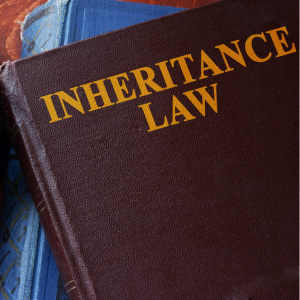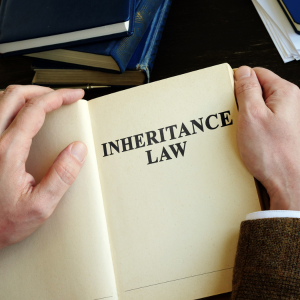
Overview of Minnesota Inheritance Laws
What are the key statutes governing inheritance in Minnesota?

Minnesota probate laws and the Minnesota Uniform Probate Code form the basis of Minnesota inheritance laws. These rules help divide a person’s things after they pass away. If there’s no will, state rules apply. Minnesota doesn’t have an inheritance tax, so heirs usually don’t pay taxes on what they get. The Minnesota descent and distribution laws show how to divide things if someone dies without a will.
How does the probate process affect inheritance distribution?
The probate process in Minnesota helps decide who gets what when someone dies. A probate court checks the will and ensures that creditors pay the debts first. The process, known as probate fees, can take time and cost money. Some things, like joint accounts, can bypass probate in Minnesota, making it easier for heirs to get them.
Are there specific Minnesota laws for intestate succession?
Yes, if someone dies without a will, intestate succession laws in Minnesota decide who gets their things. Intestate succession in Minnesota starts with the spouse and kids. If they aren’t around, it goes to other family members. Minnesota intestacy laws guide this order, helping with Minnesota heirship determination to ensure everyone gets a fair share.
Determining Heirship in Minnesota
Understanding Minnesota heirship laws is essential for planning your estate and solving disputes over who gets what when someone dies. These laws explain inheritance and what happens when no direct heirs exist.

Who is considered an heir under Minnesota law?
In Minnesota, heirs are usually the family members who get the property if someone dies without a will. Intestate succession occurs when someone passes away without a will. According to Minnesota’s inheritance laws, children and spouses are often the primary heirs. If there is no will, a personal representative manages the division of the estate, as appointed by the court. Sometimes, rights of survivorship mean certain things go straight to a co-owner who is still alive. Minnesota’s intestacy laws ensure that a person’s property is shared by following descent and distribution procedures. Knowing about fiduciary duties and beneficiary rights in Minnesota can help avoid legal fights over this process.
How does Minnesota handle cases with no direct heirs?
Minnesota’s intestate succession laws take over when there are no direct heirs. The Minnesota Uniform Probate Code provides rules on how to distribute the assets. If there’s no spouse or close relative, the probate court in Minnesota might need to decide who gets what. These cases often require more estate administration and might lead to disagreements as relatives or others try to claim part of the estate. Understanding Minnesota descent and distribution laws helps ensure an easy transfer of assets.
Can adopted children claim inheritance rights in Minnesota?
In Minnesota, adopted children have the same inheritance rights as biological children. They can inherit from their adoptive parents just like any natural child. Minnesota inheritance rights and intestate succession laws guarantee this. Minnesota also has guardianship and will requirements that explain the rights of adopted children. Minnesota property distribution rules treat children and spouses equally when there is no will.
K&G Investments emphasizes the importance of effective estate planning to safeguard your legacy and provide peace of mind for you and your family. They can provide insights and help navigate inheritance laws.
Differences Between Wills and Trusts in Minnesota
When planning what happens to your things after you die in Minnesota, you must know about wills and trusts. They help manage and give out your stuff, but they work differently. A will is a paper where you write down who gets your things after you’re gone. A trust can help manage your stuff while you are alive and decide who gets it when you die. Knowing Minnesota’s trust and will laws is essential to determine what’s right for you.

What are the advantages of creating a will in Minnesota?
Making a will in Minnesota has good points. You get to say who gets your things, so everyone knows what you want. Minnesota will require you to make sure your wishes are legal, which will help you feel better. Your will needs to go through probate court in Minnesota. A clear plan enables you to do everything correctly and ensures your executor understands their responsibilities in Minnesota. Having a will shows testamentary capacity, which means you can make decisions about your stuff.
How do trusts operate differently from wills in estate planning?
Trusts and wills do different things in estate planning. Trusts, like revocable trusts in Minnesota, let you change your mind while you’re alive and move your stuff without probate. Effective trust administration saves time and money. In Minnesota, a trustee manages the trust’s assets for the beneficiaries. Trusts can have non-probate assets, meaning they don’t go through probate. The simplicity and efficiency of trust administration are why many choose trusts for easier estate planning.
Are there tax implications when using trusts for inheritance?
Trusts can affect taxes when passing on inheritance. Minnesota estate tax laws mean you need to think about wealth transfer carefully. Trusts help with estate tax planning by possibly lowering Minnesota inheritance tax and other taxes. However, understanding these changes is essential to follow the rules and get the most benefits. Talking to an expert on Minnesota estate tax laws can help you set up your trust to match your goals and pay less inheritance tax.
Spousal and Family Rights in Minnesota Inheritance
How is spousal inheritance determined in Minnesota?

In Minnesota, when someone’s spouse dies, the surviving spouse can choose an “elective share” of the estate. State laws can override the will, allowing beneficiaries to take a part of the estate even if the will states otherwise. Minnesota doesn’t use community property laws like some other states. Instead, it has its own rules for looking out for the spouse. Homestead rights also allow the surviving spouse to stay in the family home.
What inheritance rights do children have in Minnesota?
Children’s inheritance rights come from intestate succession laws when a person in Minnesota dies without a will. These laws determine how the estate splits. To figure out who gets what, Minnesota heirship determination is a process. If the heirs are minors, Minnesota guardianship laws help ensure their inheritance is taken care of until they grow up.
Can disinheritance of family members occur under state law?
In Minnesota, you can disinherit a child if you follow specific rules. However, if someone questions whether the person making the will could make sound decisions or experienced pressure, a problem might arise. In such cases, family members can start a Minnesota will contest. Proper Minnesota estate administration resolves these issues and distributes the estate according to the deceased’s wishes.
Challenges and Resolutions in Estate Planning
What common disputes arise during inheritance proceedings?

Inheritance disputes can be challenging for families. In Minnesota, people often disagree over the interpretation of a will or how the estate should be distributed. Sometimes, heirs think they are not getting their fair share. These issues can end up in probate court. An experienced probate attorney in Minnesota can help sort these issues out. Quick and fair help is essential to fix these problems.
How can one avoid probate conflicts in Minnesota?
Avoiding probate problems makes things easier for everyone. Here are some ways to help:
- Create a clear will: This helps prevent fights among family members.
- Establish revocable trusts: These trusts help skip the probate process.
- Identify non-probate assets: Things like life insurance go straight to beneficiaries.
- Utilize a small estate affidavit: For small estates, this makes things simpler.
Planning well, like using a Minnesota living will, can make everything smoother and prevent arguments.
When should you consult an attorney for estate planning?
It’s wise to talk to a probate attorney in Minnesota for several reasons:
- Your estate is large or complex: Experts can help manage taxes and assets.
- You need help with trust administration: Attorneys can set up and look after trusts.
- You’re unsure of your testamentary capacity: Legal advice ensures your wishes are clear.
- You have specific asset distribution instructions: Lawyers help ensure everyone understands your wishes.
Working with a reasonable attorney helps cover all bases in estate planning and reduces future disagreements. K&G Investments highlights the value of proper estate planning, protecting your legacy, and providing you and your family peace of mind. For more information and to get started, contact K&G Investments today.
FAQs:
What are the key inheritance regulations in Minnesota that one should be aware of?

In Minnesota, inheritance laws tell us how a person’s stuff is shared when they pass away. If there’s no will, there are special rules called intestate succession. These laws ensure that everyone handles everything correctly.
How does one go about claiming an inheritance in Minnesota?
You may need to go through the probate process to claim an inheritance. The process involves filling out forms and notifying creditors and heirs about the person’s passing. Sometimes, there are easier ways if the estate isn’t too big.
What are Minnesota’s legal guidelines regarding digital assets in probate?
In Minnesota, laws now cover what happens to online accounts when someone dies. Executors can manage these accounts to follow the person’s wishes or state rules.
Can you explain the concept of incapacity planning in Minnesota?
Incapacity planning is getting ready for a time when someone can’t make decisions due to illness. In Minnesota, people can use documents like advance directives to say what medical care they want and choose someone to make decisions for them.
How do Minnesota inheritance laws affect familial relationships, such as between siblings or parents?

Minnesota laws make sure assets are shared fairly among family members. If there’s no will, things usually go to close family, like a spouse or children, then to parents or siblings.
What role do creditors play in the inheritance process in Minnesota?
The executor must notify creditors during probate in Minnesota. They have a set time to claim any money the deceased person owes. The executor should pay these debts before distributing the remaining assets to the family.
Is a written will required to ensure the proper distribution of assets in Minnesota?
Having a will isn’t mandatory, but it’s a good idea to show who gets what. Without a will, state laws decide asset division, which might not match the person’s wants.
What guidance exists for those involved in real estate inheritance in Minnesota?
For real estate inheritance in Minnesota, understanding deeds and titles is essential. Proper handling keeps things smooth. Talking to experts can also help avoid problems.
Key Insights
- Understanding inheritance regulations in Minnesota is essential for planning. Look into the laws governing inheritance and Minnesota legacy laws.
- Administrators have specific duties under Minnesota’s inheritance rules that affect the management of estate matters.
- Succession laws require a clear list of descendants and their rights, including issues like tenancy by entirety.
- To claim inheritance in Minnesota, you must follow secure steps. Official notice is sent to relatives and partners entitled to the inheritance.
- Creating advance health care directives is key to Minnesota’s incapacity planning. These documents affect legal decisions.
- Digital assets in Minnesota probate need careful handling during estate procedures and closing.
- Managing vehicle titles, deeds, and Minnesota real estate inheritance is necessary to comply with state laws.
- Adoption, marriage, and birth records can change inheritance rights, especially in contested cases. It’s best to plan early.
- Proxy statements and agreements related to succession can influence how property is transferred.
- K&G Investments offers help with Minnesota inheritance laws to prepare your family for the future.
This information applies to Minnesota and its cities, including Minneapolis, St. Paul, Minnetonka, Plymouth, and more. For more details, please call us at (612) 400-8070 or visit our website at K&G Investments.
Additional Resources For Minnesota Sellers


